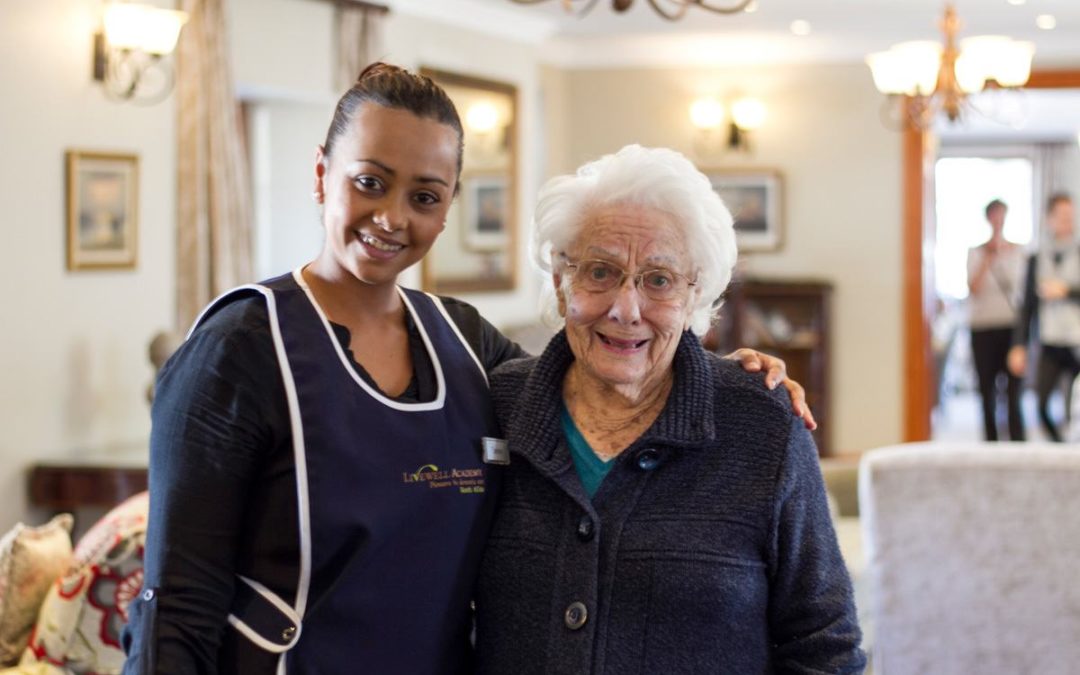Choosing to care for your parents or loved ones with dementia is a very difficult and emotional decision to make. Dementia care facilities such as Livewell offer fantastic support, care and assistance to those living with dementia but unfortunately not all families have access to a dementia care facility for many different reasons. Caregiving can be quite challenging and one needs ample information and training before embarking on this journey. Just as there is no such thing as a perfect parent, there is no such thing as a perfect caregiver. You have the right to the full range of human emotions, and sometimes you are going to be impatient or frustrated. Learning to forgive your loved one as well as yourself is essential in the caregiving journey.
We’ve put together some basic advice about what you should know before caregiving for a parent living with dementia.
There is ample information and resources about dementia care widely available and we highly recommend that you familiarise yourself with it before taking on the responsibility as a caregiver. Dementia can present itself in many different ways and affects people differently. You will need to be prepared for any scenario, symptoms and diagnosis. In some instances you may not have to do everything for your parent with dementia. You can allow them to do the tasks they can handle, such as dressing themselves, but allow them leeway to finish the task on their own and at their own pace. Not only does this help them but it also lessens any burden or responsibility on you as a caregiver.
Caring for a parent with dementia can take its toll on you emotionally especially if the parent was once an alert and engaging person and is now someone who is unrecognizable. We know how easy it is to lose yourself to frustration but the most important thing to do is to try and remain calm. Ensure you take some time out to rejuvenate and relax, ask other family members to pitch in and take that much needed break that you deserve. It’s very important that you realise it’s okay to ask for help and accept help when it’s offered. Your health is important to begin with, but now your parents welfare depends on you too. Neglecting your own needs to see to theirs does not benefit your parents in the long run. Have a list of things people can do to help you, whether it is bringing a meal, picking up a prescription, helping trim the roses or staying with your loved one while you run an errand. This will reinforce offers of help. It is harder to ask for help than to accept it when it is offered, so don’t wait until you “really need it” to get support.
We have had many experiences where family caregivers feel that they should carry the responsibility themselves, this is especially true for male spouses caring for their wives with dementia. We also understand that family caregivers have very high standards for their loved ones and this is why a proper handover to the person standing in for the family caregiver is vital.
“Caregiving doesn’t just mean taking care of a loved one 24 hours a day,” says Donna Schempp, LCSW, program director at the Family Caregiver Alliance in San Francisco. “If you’re helping a parent out with the basics of living, you’re a caregiver. If your visits have stopped being social and become a necessity, you’re a caregiver.” Not all families are able to care for their loved ones with dementia and placing them in a facility is more than alright. At Livewell we constantly align ourselves to global best practice in dementia care. Our goal is to be the South African leader in memory-assisted care that is not only internationally current, but also known for its warmth and for its specialised care, tailored to the individual. If you would like to find out more about placing your loved one in our trusted care, get in touch with our team today.
